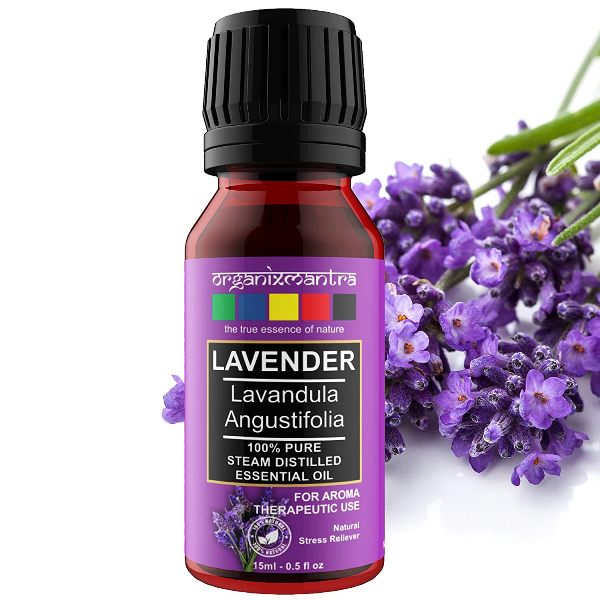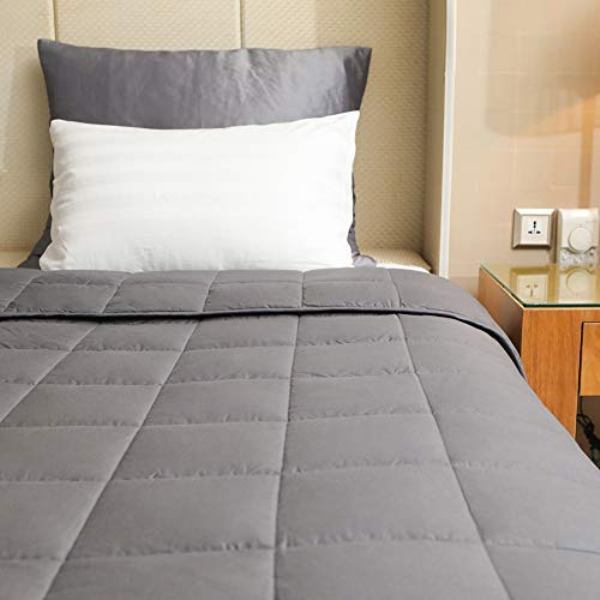Parents are sleep deprived most of the time & it’s time to fix it! Here are the Best Sleep Products for Parents to Unwind, Relax and get the rest they need!
How did you sleep last night? And the night before that? Did you sleep well this week on average?
I’m sure these questions are a little confusing for many – after all sleep quality depends upon many factors, including total number of hours of sleep, as well as the quantity of deep sleep. At the end of the day (or rather, night), if you wake up feeling refreshed and energetic and can sustain your energy throughout the day, you sleep well. Yet, to reach this state, experts like the Sleep Foundation say that adults between 18 and 64 years of age need 7-9 hours of sleep at night.
Unfortunately, most of us get much less than this, what with parenting responsibilities and now, pandemic stress. Here are some facts about sleep in adults, from various sources including the 2021 Philips Global Sleep Survey:
- A new parent loses 109 minutes of sleep every night for the year after having a baby
- After having kids, only 10% parents were getting more than 7 hours of sleep
- 36% of people have slept in a separate bed from their partners to improve their sleep
- Only 55% adults reported being satisfied with their sleep
- 74% use cell phones in bed, of which 41% read news related to COVID-19 and 37% read political news
- 70% of adults experience one or more sleep challenges due to the pandemic
These facts tell us the sad story of adults and sleep, particularly of parents. When you’re a parent, you have so much to worry about and to plan for the next day. If you have a young child, you need to be alert of periodic awakenings for feeding or toilet training. The result is severe sleep deprivation, evident through incidents where parents fall asleep in their cars, at work and even in the shower!
When we don’t sleep enough enough, the leftover sleep accumulates in a sleep debt. Over a long term, this sleep debt becomes large enough to cause serious issues like obesity, lowered immunity, depression as well as increased risk of cardiovascular disease.
That’s why it’s so important to take steps to ensure that you get enough sleep and good quality sleep. In this process, not only will you be improving your own health, but you’ll also be setting a good example for your kids. To help you on this path, there are several sleep products that can get rid of all your sleep challenges and ensure that you get your full night of rest!
15 Best Sleep Products for Parents to Unwind and Relax
1. Sleep Mask
Melatonin is the sleep inducing hormone in our body, which is sensitive to light. So when we continue to subject ourselves to artificial night throughout the night, it cannot send the ‘sleepy signal’ to the brain. Eye masks help block out light and stimulate melatonin, leading to falling asleep faster. Choose an eye mask that is made of skin-friendly material like silk, and keep it clean to avoid rashes or infections.
2. Foam Ear Plugs
Besides light, sound is another important aspect that affects sleep. Anyone with a snoring partner will know how difficult it is to get a good night’s sleep, and this leads to separate sleeping arrangements which doesn’t bode well for the relationship. Instead, opt for foam ear plugs that are very soft and comfortable, and also blocks out all noise, whether it’s snoring, traffic or a barking dog.
3. Chamomile Tea
Chamomile is also referred to as nature’s tranquilizer – it is that effective at inducing sleep! This is due to apigenin, an antioxidant that chamomile is rich in. This antioxidant helps decrease anxiety, inducing calm and hence better sleep. Be careful to choose pure chamomile tea and not those that come mixed with green tea as those may contain caffeine which can disrupt sleep.
4. Golden Milk
We’ve heard it since we were kids – having a glass of warm milk can help us sleep better. This could be because of the amino acid tryptophan, which increases the production of serotonin, a hormone that encourages relaxation and boosts melatonin production. What makes milk better is adding turmeric, which is known to possess properties that lower stress levels, improves mood and induces sleep.
5. White Noise Machine
Have you tried sleeping in a room that was pin-drop silent? Chances are that you found it hard to fall asleep, and that is because the complete silence makes us more sensitive to every tiny noise, which can disturb sleep. Instead, it helps to have some kind of white noise in the background that is at a low frequency and resembles nature sounds. You can get a white noise machine to produce this noise artificially, but even the whirr of a fan will work.
6. Aromatherapy Pillow Spray
Aromatherapy is a kind of natural healing that is getting increasingly popular in improving sleep. Pillow mists or bedding sprays make use of this theory by coming up with their own aromatic blends. Spritzing some of this mist on your bedding or pillows can put you in a better mood, reduce any anxiety you’re feeling and slowly lull you to sleep.
7. Lavender Essential Oil
Lavender is well known to be able to reduce stress levels and it is even used in hospitals to treat postpartum depression and to lower blood pressure. Having lavender essential oil at home can help you use it in various ways so you can settle down for the night. You can make your own pillow mist or add a few drops to your room freshener or diffuser for a lovely atmosphere.
8. Orthopedic Memory Foam Pillow
Your pillow makes a very big impact on how you sleep. In fact experts suggest that you can go for a mid-range mattress, but choosing a premium pillow makes all the difference between a bad night and a full 8 hours of sleep. You need to choose a pillow that is suited to your style of sleeping and your specific needs, like back pain or neck pain.
9. Wedge shaped pillow
If you tend to suffer from acid reflux or GERD, you may have found yourself waking several times through the night and also having trouble falling asleep. A wedge-shaped pillow is the perfect solution in such cases, since it elevates the upper body and prevents the acid from rising up into the esophagus. It also helps to elevate your head when you want to read in bed.
10. Weighted Blanket
Weighted blankets are therapeutic blankets that are heavier than regular blankets and quilts. They can weigh anywhere between 2.5 kg and 13.5 kg and when draped, offer an effect similar to deep pressure stimulation, which has many effects like lowering anxiety and improving mood. Weighted blankets can also help people suffering from conditions like ADHD and autism.
11. Blackout Curtains
Blackout curtains do the same job as eye masks – they block out light, thereby stimulating the production of melatonin, the sleep hormone. Blackout curtains are perfect for parents of young babies since it can completely block sunlight during the day and create a dark and sleep-inducing atmosphere whenever the parents want to take a nap.
12. Sleep Trackers
One way of fixing your sleep is by understanding your sleep patterns, and health trackers can help you do that. Most popular fitness trackers available today track certain body metrics to determine how much you slept, including deep sleep and REM sleep. It gives a sleep score based on this, and you can start connecting the patterns to how you feel when you wake up and how much REM sleep you got that night. It also helps you wake up at a time when you are out of a deep sleep cycle.
13. Adjustable Light
In modern life, light seems to be a major issue when it comes to getting proper sleep, and sometimes we need more modern technology to help! One such helpful device is an adjustable light the color of which can be adjusted. So you can opt for a warm, relaxing light ahead of your bedtime, so your body gets the message that it’s time to sleep and will start adjusting your body accordingly.
14. Blue Light Blocking Glasses
As we say in the survey results earlier, a large percentage of people look at their phone in bed and worse, read the news! If you prefer to do some light reading on your device at bedtime, you can at least reduce the impact of the blue light on your circadian rhythm. These blue light blocking glasses will block out blue light completely, so your brain doesn’t get the wrong message that it needs to stay awake further.
15. Air Purifier
For some of us, it is the quality of the air that affects our sleep, particularly if we suffer from allergies, asthma or respiratory issues. An air purifier can help here, by filtering out all kinds of impurities including smoke, dust, allergens, pathogens and mold. Most of these devices also give out a soft noise that works like a white noise machine in helping you fall asleep faster.
In addition to these sleep products, there are also some apps that can help you sleep better, like Sleep by Headspace, Slumber and Calm. You can also try podcasts specifically designed for inducing sleep, like Sleep With Me which tells extremely boring bedtime stories guaranteed to put anyone to sleep!
Most importantly, build a proper bedtime routine with a focus on sleep hygiene. Try to go to sleep at the same time every night and wake up at the same time every morning. Consider your sleep cycles when deciding your wake up time – you can use an app like Sleepy Time for this. Get enough exercise during the day, cut down on caffeine and wind up work early to sleep better.
However, if you’ve been having sleep issues for 3 or more nights a week for over three months, you should consult a doctor. You may be suffering from sleep disorders like sleep apnea which require medical treatment and can be dangerous if ignored.

 Download FREE Recipe Ebooks for Babies & Toddlers
Download FREE Recipe Ebooks for Babies & Toddlers






























Leave a Reply